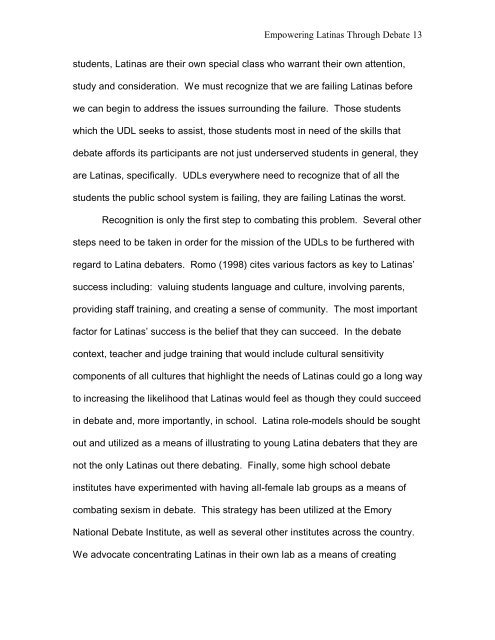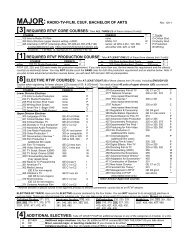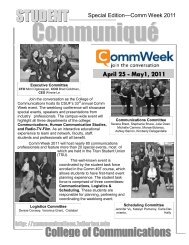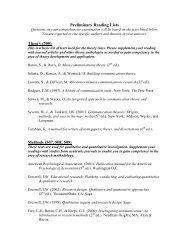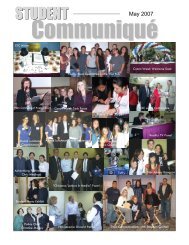Empowering Latinas Through Debate - College of Communications ...
Empowering Latinas Through Debate - College of Communications ...
Empowering Latinas Through Debate - College of Communications ...
Create successful ePaper yourself
Turn your PDF publications into a flip-book with our unique Google optimized e-Paper software.
<strong>Empowering</strong> <strong>Latinas</strong> <strong>Through</strong> <strong>Debate</strong> 13<br />
students, <strong>Latinas</strong> are their own special class who warrant their own attention,<br />
study and consideration. We must recognize that we are failing <strong>Latinas</strong> before<br />
we can begin to address the issues surrounding the failure. Those students<br />
which the UDL seeks to assist, those students most in need <strong>of</strong> the skills that<br />
debate affords its participants are not just underserved students in general, they<br />
are <strong>Latinas</strong>, specifically. UDLs everywhere need to recognize that <strong>of</strong> all the<br />
students the public school system is failing, they are failing <strong>Latinas</strong> the worst.<br />
Recognition is only the first step to combating this problem. Several other<br />
steps need to be taken in order for the mission <strong>of</strong> the UDLs to be furthered with<br />
regard to Latina debaters. Romo (1998) cites various factors as key to <strong>Latinas</strong>’<br />
success including: valuing students language and culture, involving parents,<br />
providing staff training, and creating a sense <strong>of</strong> community. The most important<br />
factor for <strong>Latinas</strong>’ success is the belief that they can succeed. In the debate<br />
context, teacher and judge training that would include cultural sensitivity<br />
components <strong>of</strong> all cultures that highlight the needs <strong>of</strong> <strong>Latinas</strong> could go a long way<br />
to increasing the likelihood that <strong>Latinas</strong> would feel as though they could succeed<br />
in debate and, more importantly, in school. Latina role-models should be sought<br />
out and utilized as a means <strong>of</strong> illustrating to young Latina debaters that they are<br />
not the only <strong>Latinas</strong> out there debating. Finally, some high school debate<br />
institutes have experimented with having all-female lab groups as a means <strong>of</strong><br />
combating sexism in debate. This strategy has been utilized at the Emory<br />
National <strong>Debate</strong> Institute, as well as several other institutes across the country.<br />
We advocate concentrating <strong>Latinas</strong> in their own lab as a means <strong>of</strong> creating


